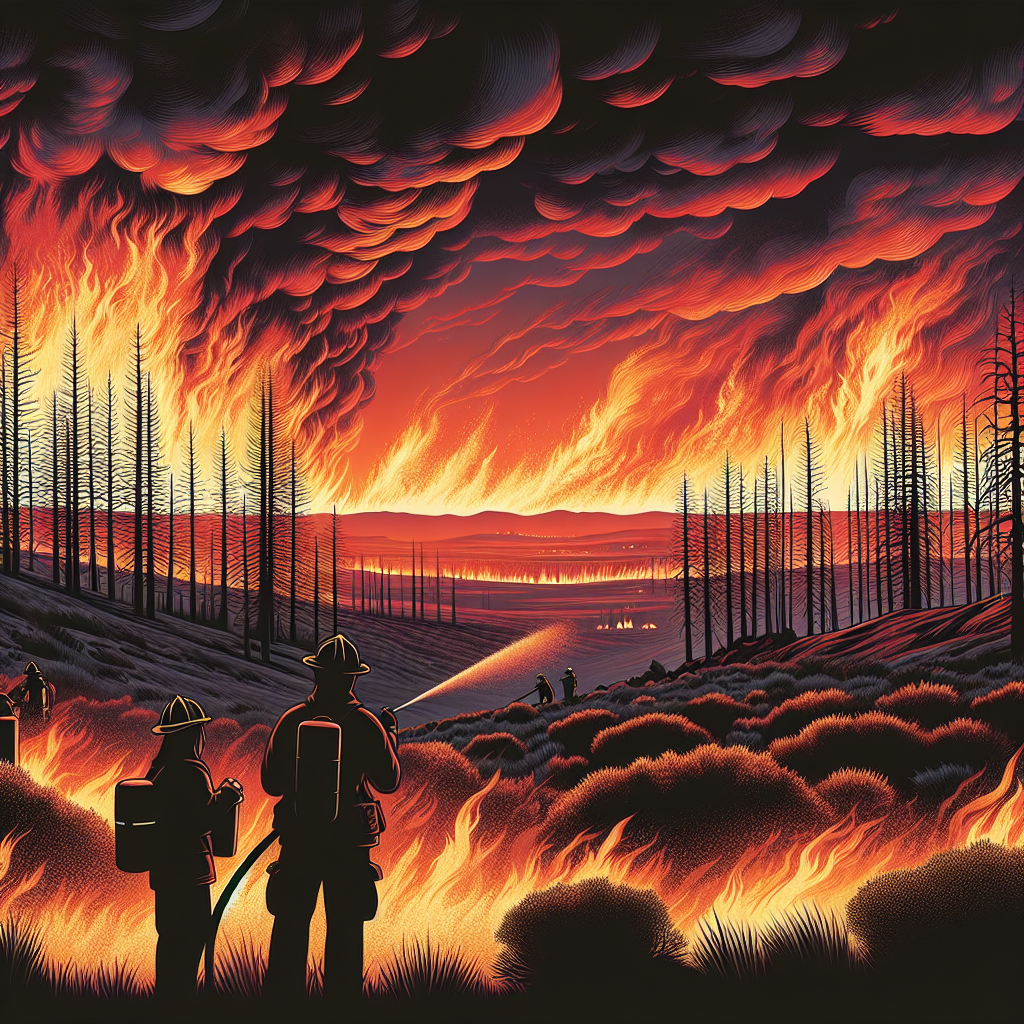Raging Wildfires Threaten Los Angeles Amid Record Heat and Vegetation
Wildfires around Los Angeles have intensified due to rapid vegetation growth and record heat associated with climate change. The blazes have destroyed over 230 structures and forced mass evacuations. Experts warn conditions could worsen with seasonal Santa Ana winds. The fires highlight the urgency for updated fire management strategies.

Wildfires are raging around Los Angeles, accelerated by recent vegetation growth and record heat tied to climate change, according to climate scientists. The Southern California blazes, which have destroyed over 230 homes and structures, could worsen with the approach of seasonal Santa Ana winds.
Since Sept. 5, three major fires in the mountains surrounding the second-largest U.S. city have forced tens of thousands to evacuate. Consecutive wet winters have led to an abundance of grass and brush, which dried out from recent triple-digit heat, setting the stage for these destructive fires.
'That one-two punch, that sequence, means you grow all this extra potential fuel for fires and then you dry it out to extreme levels,' said Daniel Swain, a UCLA climate scientist. The Santa Ana winds, expected to start this month, typically blow westward toward densely populated areas, raising the risk of further calamity.
The Airport Fire in the Santa Ana Mountains, ignited by a digger, has destroyed 160 structures and scorched 24,000 acres. Another significant blaze, the Bridge Fire, rapidly expanded to 55,000 acres, fueled by decades of accumulated debris.
Data from CAL FIRE shows California wildfires have burned nearly four times as much land this year compared to the same period last year. Nationally, wildfires have scorched over 7.3 million acres in 2024, surpassing the average of the past decade.
(With inputs from agencies.)
ALSO READ
China Braces for Super Typhoon Yagi: Red Alerts and Mass Evacuations
Raging Wildfire Sparks Evacuations in Scorching Southern California Heat
Tropical Storm Francine Prompts Gulf Oil Evacuations
Hurricane Francine Threatens Gulf Coast, Prompts Evacuations and Emergency Declarations
Tropical Storm Francine Threatens Gulf Coast: Evacuations and Energy Shutdowns Ensue










